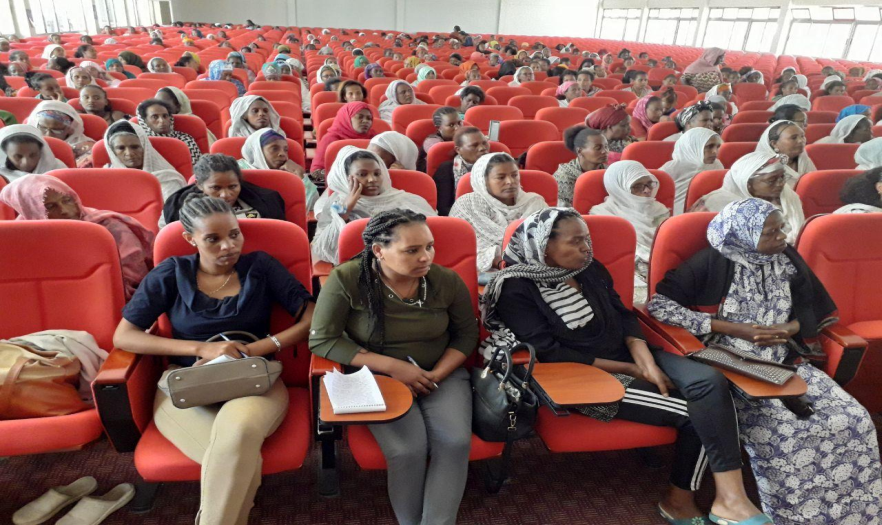Engaging Civil Society Organizations to Expand Reach to Women in the Fight Against AMR
Antimicrobial resistance (AMR) is a globally recognized public health and economic threat. Causes of AMR include behavioral factors, such as overuse, underuse, or misuse of antimicrobials. In 2015, the World Health Organization (WHO) conducted a global public awareness survey across 12 member states to assess antibiotic resistance knowledge and understanding. The results revealed mixed knowledge levels globally, with many of those surveyed demonstrating AMR awareness but not full comprehension. More than half of the respondents did not know that they could play a role in addressing antibiotic resistance, believing there was not much they could do.
In a targeted approach, the USAID MTaPS program conducted a similar knowledge and behavior assessment of Addis Ababa Women Federation members who attended MTaPS’ AMR training in February 2020. The results showed that 65% of respondents had heard about AMR, and half of them thought that AMR happens when the body becomes resistant to antimicrobials. About 38% of respondents believed antibiotics could be used to treat colds and flu, while 42% thought that it is acceptable—when you feel better—to stop taking antimicrobials before finishing a full course of treatment. The findings pointed to a need and an opportunity —educating and mobilizing women in the fight against AMR.
MTaPS tapped into existing structures of civil society organizations (CSOs) and community organizations engaged in educating the public about HIV/AIDS prevention; maternal, newborn, and child health; and hygiene and sanitation with the aim to explore inclusion of AMR as one of the topics for health education. As part of its CSO strategy, MTaPS engaged leaders of the Ethiopian Youth and Women Federations on the global AMR challenges and the role CSOs can play in combatting AMR. In exchange, the MTaPS team learned about the federations’ health-related activities in communities, such as maternal and child health, including vaccination campaigns; HIV prevention and testing; and hygiene and sanitation—platforms where AMR information can potentially be integrated into education programs to reach a large population segment, especially women.
MTaPS provided a two-day training on AMR to 29 volunteers (72% of whom were female) from the Ethiopian Youth and Women Federations, equipping them with the basic knowledge on AMR so they could sensitize their communities on the subject. The volunteers were enthusiastic about their learning and eager to share their insights with the community.
Vice President of the Addis Ababa Women Federation, Huluagerish Tazeze, said, “This training opportunity helped me to recognize that AMR is an important topic that we had not addressed so far in our engagement with the public. From now on, we will have sessions on AMR when we discuss public health issues with our communities.”

Volunteers who attended the AMR training (left) and participants of the educational session on rational use of antimicrobials (right). Pictures taken before the COVID-19 pandemic. Photo Credit: Yohannes Demissie, MTaPS, and the Addis Ababa Women Federation
The trained female volunteers successfully conducted educational sessions with minimal technical support from MTaPS, reaching 520 members of the Addis Ababa Women Federation on the appropriate use of antimicrobials.
The activities underscored existing community structures, such as CSOs, with close ties to the communities as an effective mechanism for disseminating information on the prevention and containment of AMR to women as the targeted population segment, with minimum cost.